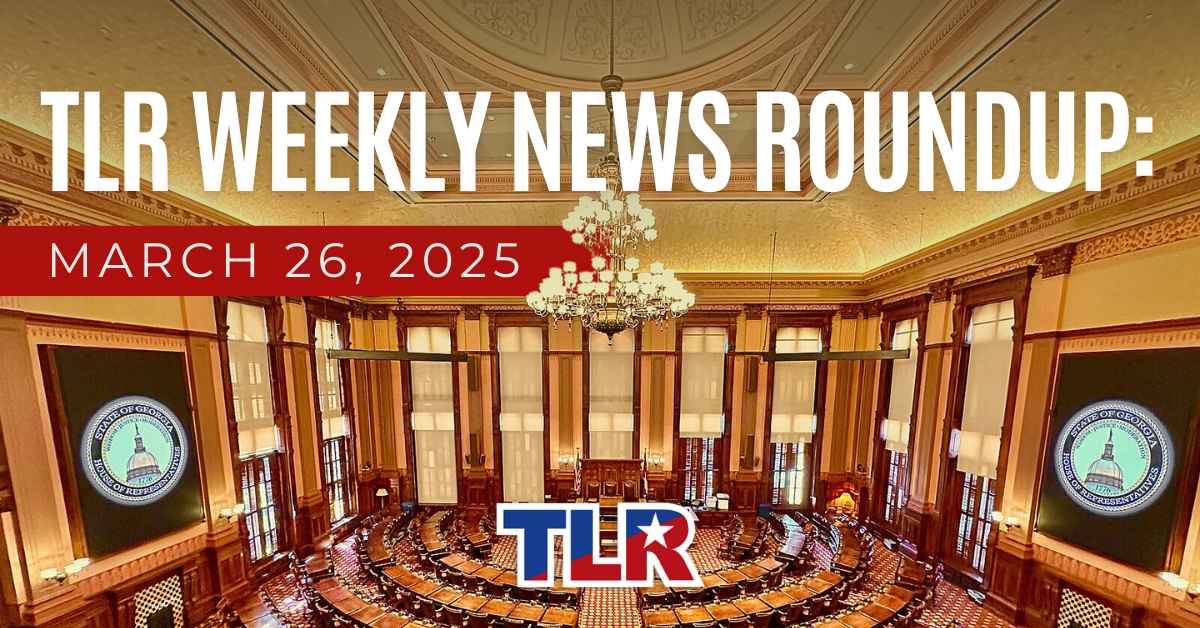SB 68 Heads to Governor Brian Kemp’s Desk to Become Law
What happened: On March 21, in a critical move, Georgia lawmakers signed off on Senate Bill (SB) 68 in Georgia Gov. Brian Kemp’s (R) comprehensive tort reform package.
SB 68 Heads to Governor Brian Kemp’s Desk to Become Law
What happened: On March 21, in a critical move, Georgia lawmakers signed off on Senate Bill (SB) 68 in Georgia Gov. Brian Kemp’s (R) comprehensive tort reform package.

What happened: On March 21, in a critical move, Georgia lawmakers signed off on Senate Bill (SB) 68 in Georgia Gov. Brian Kemp’s (R) comprehensive tort reform package. The bill now heads to Gov. Kemp’s desk to be signed into law. Read more
Tell me more: SB 68 aims to curb lawsuit abuse while protecting families, small businesses and Georgia’s economic competitiveness.
On February 21, the Georgia State Senate passed SB 68 with a bipartisan vote. The amended bill, which passed the Georgia State House of Representatives on a 91-82 vote on March 20, maintains its core provision addressing “phantom damages” – awards based on inflated medical bill amounts that were never paid.
TLR Thoughts: Much like Georgia, TLR is advocating this session for meaningful reforms that will put a stop to the abusive lawsuits threatening Texas businesses and endangering the Texas economy. The Lone Star Economic Alliance, of which TLR is a founding member, is urging Texas lawmakers to pass SB 30/HB 4806 – vital legislation that will restore transparency and fairness to Texas’s courts. Notably, SB 30/HB 4806 includes reforms that will (1) encourage doctors to treat accident victims; (2) stop the manipulation and inflation of medical damages; and (3) educate jurors on noneconomic damages by providing clear standards and definitions. SB 30 will be heard by the Senate State Affairs Committee next Monday, March 31, 2025.
What happened: The American Tort Reform Association (ATRA) has released a new report exposing the growing misuse of public nuisance litigation, which is now being weaponized and targeted to entire industries over complex societal issues. Read more
Tell me more: The report details how plaintiffs’ lawyers use public nuisance claims to bypass traditional liability principles and hold businesses accountable for “far-reaching societal problems, regardless of fault or causation.”
Critically, the report warns that abusive public nuisance lawsuits that target lawful activities like producing oil and gas and plastic packaging could lead to unprincipled liability, higher consumer costs, and harm to American businesses’ competitiveness.
TLR Thoughts: Attorneys representing government entities have resurrected the ancient “public nuisance doctrine” as a mechanism to regulate society through litigation. Courts shouldn’t be engaged in shaping public policy—only in evaluating the specifics of each case and applying the law accordingly. TLR is advocating this session for narrow legislation (SB 779) that will protect the Legislature’s authority to set public policy, while preserving nuisance lawsuits for use when appropriate.
What happened: A new study prepared for Citizens Against Lawsuit Abuse (CALA) by Waco-based economic research firm The Perryman Group found that Texans pay an average of $1,725 more for goods and services every year as the cost of lawsuits and massive court awards are passed on to consumers. Read more
Tell me more: This $1,725 lawsuit tax—which drives up the cost of everything Texans buy, from groceries to housing to insurance—is higher than the national annual average lawsuit tax of $1,666 per person.
Between 2009 and 2023, Texas led the nation in the number of “nuclear verdicts” (i.e., jury verdicts of $10 million or more). According to the CALA study, a total of 207 nuclear verdicts were awarded in Texas during that time, totaling more than $45 billion—costs that are often ultimately borne by consumers throughout the state.
By the numbers: The lawsuit tax is even higher in specific regions of the state:
$2,746 per Texan in Austin-Round Rock-Georgetown;
$2,483 per Texan in Dallas-Fort Worth-Arlington; and
$2,373 per Texan in Houston-The Woodlands-Sugar Land.
In his own words: “We must preserve access to courts for legitimate lawsuits, but today’s get-rich-quick lawsuit environment threatens access and drives up costs for everyone.” – Bobby Jenkins, chairman of Citizens Against Lawsuit Abuse of Central Texas
TLR Thoughts: The study comes as the Texas Legislature is considering legislation (SB 30/HB 4806) that would address unreasonable court awards known as “nuclear verdicts,” which are driving up costs for businesses and consumers and impeding economic growth in the state. Notably, the legislation has been named a priority bill by Lt. Governor Dan Patrick. SB 30 will be heard by the Senate State Affairs Committee next Monday, March 31, 2025.